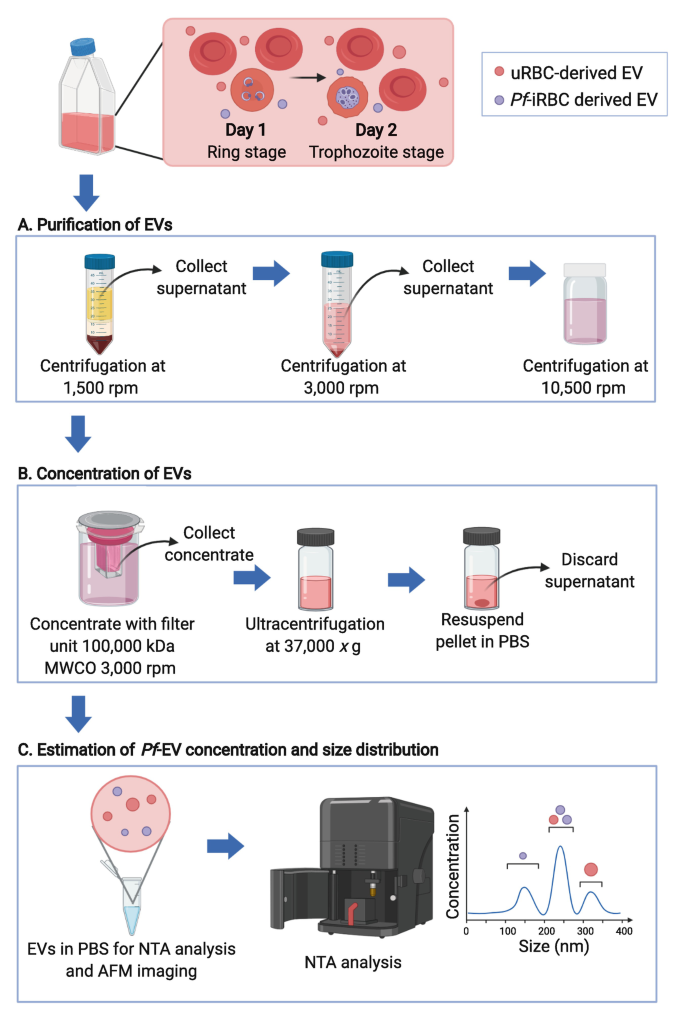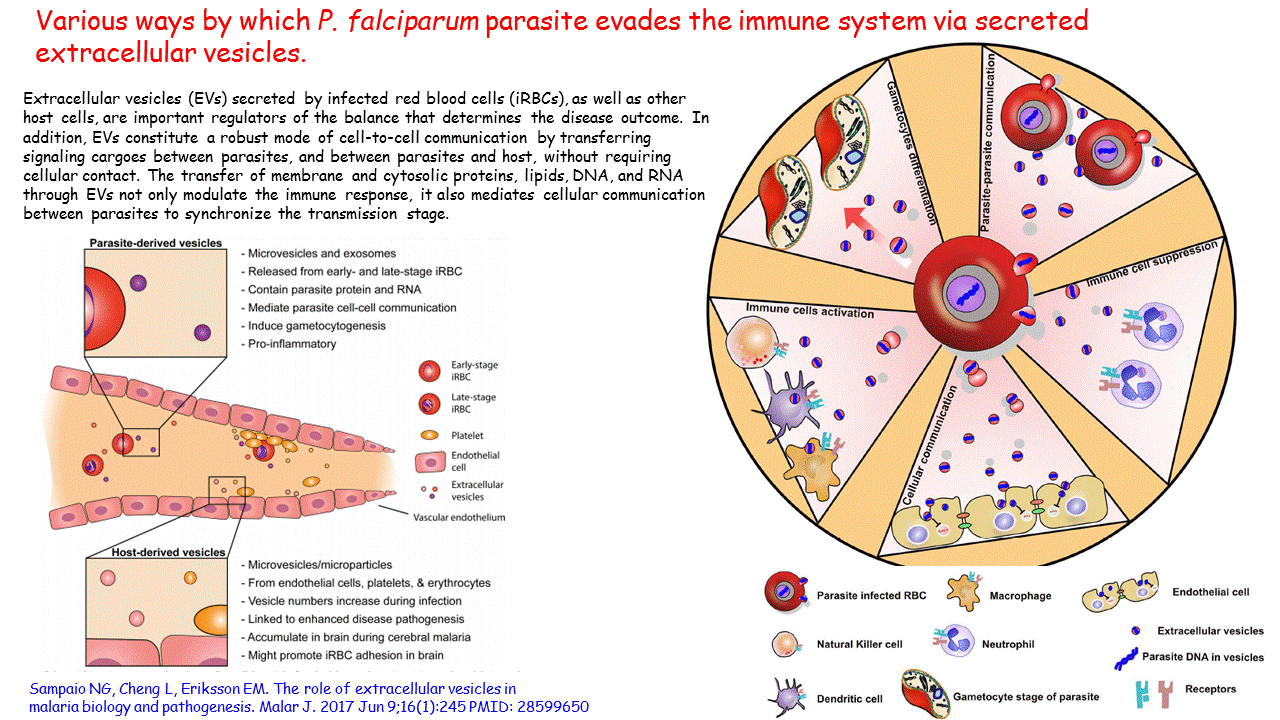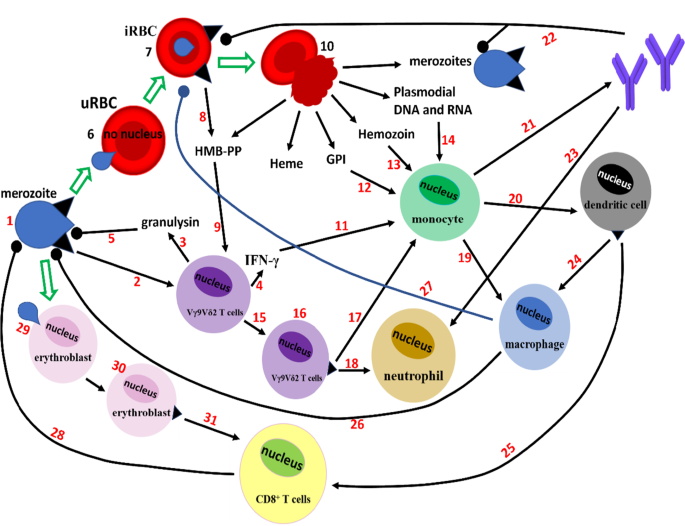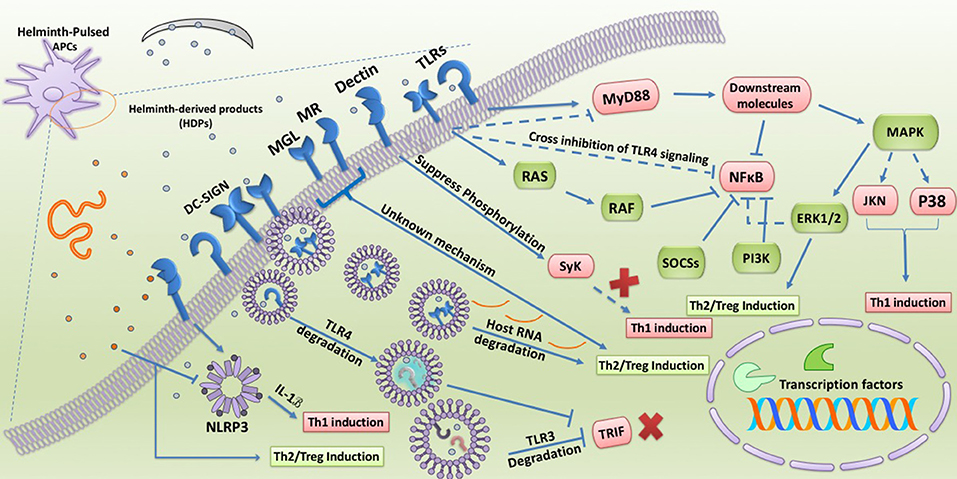Various ways by which P. falciparum parasite evades the immune system via secreted extracellular vesicles
Por um escritor misterioso
Descrição
Extracellular vesicles (EVs) secreted by infected red blood cells (iRBCs), as well as other host cells, are important regulators of the balance that determines the disease outcome. In addition, EVs constitute a robust mode of cell-to-cell communication by transferring signaling cargoes between parasites, and between parasites and host, without requiring cellular contact. The transfer of membrane and cytosolic proteins, lipids, DNA, and RNA through EVs not only modulate the immune response, it also mediates cellular communication between parasites to synchronize the transmission stage. Here, we review the recent progress in understanding EV roles during malaria.

Phagocytosis of Plasmodium falciparum by monocytes and neutrophils

Extracellular vesicle functions during infection by the malaria

Kinetics measurement of Plasmodium falciparum (Pf)-extracellular

Malaria parasites both repress host CXCL10 and use it as a cue for

Imaging of Extracellular Vesicles Derived from Plasmodium

Manipulation of host innate immune responses by the malaria

Various ways by which P. falciparum parasite evades the immune

Microorganisms, Free Full-Text

Escaping the enemy's bullets: an update on how malaria parasites

Exosomes and Other Extracellular Vesicles: The New Communicators

Frontiers Immunomodulation by Helminths: Intracellular Pathways

Helminth extracellular vesicles: Interactions with the host immune
de
por adulto (o preço varia de acordo com o tamanho do grupo)







